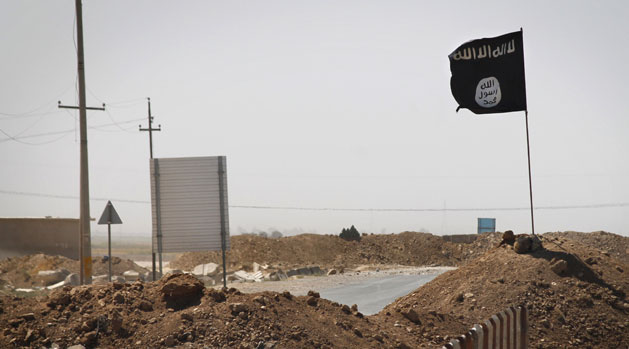What happened to the Christian women kidnapped by Islamic State?
Returning survivors tell of rape and violence at hands of brutal ‘owners’

A free daily email with the biggest news stories of the day – and the best features from TheWeek.com
You are now subscribed
Your newsletter sign-up was successful
The release and return of a number of Christian women taken as slaves by Islamic State in Iraq has prompted questions about those still being held.
In August 2014, Isis militants swept through a cluster of Christian towns near Mosul, taking control and forcing thousands to flee.
Among the towns was Qaraqosh, which was Iraq's largest Christian town with a population of 50,000. Once in command, the militants took many of the Christian women into captivity and sold them as slaves across the caliphate.
The Week
Escape your echo chamber. Get the facts behind the news, plus analysis from multiple perspectives.

Sign up for The Week's Free Newsletters
From our morning news briefing to a weekly Good News Newsletter, get the best of The Week delivered directly to your inbox.
From our morning news briefing to a weekly Good News Newsletter, get the best of The Week delivered directly to your inbox.
Qaraqosh remained under Isis control until 2016 but now, little by little, some residents who were forced to flee “have been returning to recover what belongings remain, to assess the damage to their property, and to attend church services and holidays”, says The Atlantic.
Reports suggest almost 26,000 Christians have now returned to their homes in the town but so far, of the 45 women taken from Qaraqosh, only seven have returned.
Though much is known of the plight of the Yazidis, “much less is known about the Christian women kidnapped by Isis”, says The Sunday Times.
“There are fewer of them - dozens rather than thousands - but the impact on their ancient society has been enormous”.
A free daily email with the biggest news stories of the day – and the best features from TheWeek.com
What happened to the women?
For two and a half years, Rana, a woman captured in Qaraqosh, was enslaved by Isis and sold to ever more abusive “owners” for up to £19,000. “As the militants consolidated their power over large swathes of Syria and Iraq, she fed their children, cleaned their houses and endured their brutal violence,” says the Sunday Times.
“I wanted to escape but there was no way to run away or leave,” Rana told the paper. “All the streets were full of mines. The family said, ‘If you go outside that door we will kill you.’”
Another recently freed Christian woman, Rita Habib, said that all her captors were men, married with children and subjected her to rape and abuse, forcing her to clean their houses.
“They did evil things to us. They beat us and raped us,” she told Kurdistan 24.
“The worst of all was girls aged nine who were raped. Girls would be sold for $4,000 to $15,000.”
How were they rescued?
Last year, as Isis retreated in the face of an onslaught from international forces, The Times reports Rana and Habib were rescued and returned home.
Rana and Habib were two of a number of women who were rescued by men posing as jihadists as part of the Iraqi Christian group Shlama Foundation, which paid £20,000 to bring each woman back.
“If anyone had found out the unnamed men were posing as jihadists to help the women get out they would’ve been killed,” says the Daily Mirror.